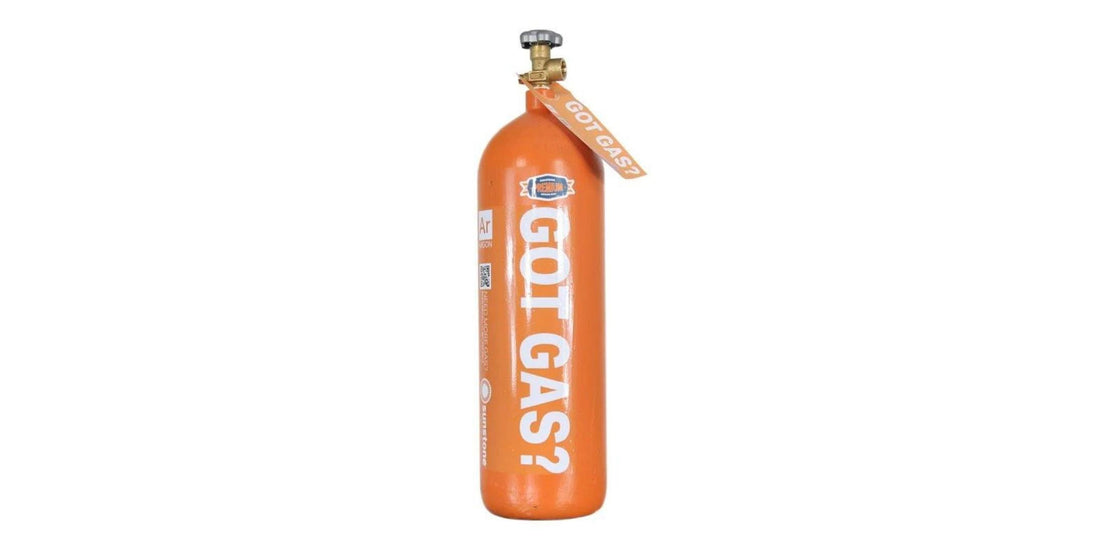
Argon Gas for Micro Welding
Check out this article from Sunstone Welders website. Click here to read the article on their website.
What is Argon Gas?
Argon gas is a chemical element with Symbol Ar, and one of the noble gases. Argon is also the 3rd most abundant gas on earth. Argon is most commonly used as an inert shielding gas. Argon is Colorless, odorless, Non-Flammable, and Non-Toxic.
Why do Sunstone's Orion Welding Systems Use Argon?
Argon is used as a shielding gas in Sunstone's Orion Welding Systems. During the welding, process metals are exposed to temperatures of upwards of 7000 Degrees. At these temperatures, most metals become liquid, which allows the formation of the weld. Argon is used to protect the molten pool of metal against elements in the Atmosphere including Oxygen, Nitrogen, and Hydrogen. These elements cause reactions with the liquid weld pool, such as porosity and increased weld spatter. Argon also plays an important role in maintaining Arc stability, which leads to increased weld penetration, better filler wire transfer, and better weld appearance.
Sunstone's premium argon is 99.996% pure Argon (Argon 4.6). Pure Argon refers to the gas being just Argon, and not mixed with another gas.



Is Argon Dangerous?
Argon has safety concerns to be aware of, but for the most part is a very safe gas. It is non-toxic and non-flammable, therefore it is not poisonous, and it will not burn. Argon does come in a compressed tank, and proper safety protocol should be followed when working with compressed tanks. Argon is 38% denser than air so when working within confined areas ensure that you have proper air ventilation. The amount of Argon used in the Orion system is very small and is of very little safety concern.
What Kind of Argon Gas do I Get?
We recommend using 99.996% pure Argon (Argon 4.6). This is one of the most commonly used welding gasses in the world. Every major gas supply company will carry this. It is the same as welding gas used in a traditional TIG welding Setup. Pure Argon refers to the gas being just Argon, and not mixed with another gas. Other shielding gasses such as CO2 and Argon CO2 mixes, do not work as well as pure argon. Ultra high purity or medical grade Argon is not required.

About How Long Should My Argon Tank Last?
It depends on a number of different factors, such as frequency of use, pressure setting, and pre/post flow settings. Sunstone's premium argon comes in an 80 scf tank, which is the most common size for use with Sunstone's Orion Welding Systems. A 80 scf tank will last 6-9 months on average, depending on use.
Will I Need an Argon Regulator?
Yes, if you do not already have a gas regulator please click here to order the AGR 2 regulator.
We strongly recommend purchasing the AGR 2 regulator from us to ensure that you will have the proper type of regulator to match the tank we send you.
"AGR Inline" regulator will not work with Sunstone's premium argon tanks
What is The Recommended Argon Pressure?
Sunstone's Orion Welding systems work best at around 10 PSI. The pressure can be adjusted depending on the workpiece and how far the electrode protrudes from the welding stylus. The further out the electrode, the more argon pressure will be required in order to get proper coverage.
What systems Use Argon Gas?
Pulse Arc – Micro TIG Welding Systems
All of Sunstone's line of Orion Pulse Arc or Micro TIG welding systems use Argon Shielding Gas to provide a better quality weld and a more stable Arc. Though Argon gas is not required when using the Orino Welding Systems, it is highly recommended for consistent high-quality welds.
Laser Welding
The Sunstone line of Orion LZR Laser welding systems offers a wide variety of Laser welding systems from Benchtop to fully automated systems. All of these systems come integrated with an Argon nozzle and Computer-controlled Argon Gas valves, used for shielding Laser welds.
Resistance Welding
Sunstone offers a wide variety of Resistance Welding Systems for fine spot, micro spot welding. These systems are used for a wide range of applications including batteries, medical devices, industrial applications, Stud Welding, Automotive, Mesh & Screen, and many other applications. Argon Gas is used when required for a higher quality weld, or a better weld appearance.


